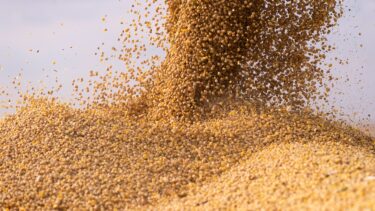Soy: smart protein for piglets
Raising healthy and high-performing piglets requires a holistic strategy that prioritizes gut health, with protein nutrition playing a crucial role. Soybean-derived products are widely used in the feed industry due to their exceptional amino acid profile. However, the varying levels of anti-nutritional factors (ANF) across different soy sources necessitate careful selection to optimize nutritional outcomes.
Why Protein Digestion Matters
Proper protein digestion is crucial to growth and gut health. Undigested protein can lead to bacterial overgrowth and inflammation, hindering growth and causing digestive issues. Factors such as stomach function, animal age, and protein source influence digestion and overall health outcomes.
Understanding Anti-Nutritional Factors (ANFs)
The quality of soybean products hinges on their ANF content, which negatively impacts digestion. Heat-sensitive ANFs like protease inhibitors can impair protein digestibility, while heat-stable ANFs such as antigenic factors and oligosaccharides pose additional challenges.
Heat-sensitive ANFs
Key anti-nutritional factors (ANFs) in soybean products include protease inhibitors, also known as trypsin inhibitor activity (TIA), which hinder the activity of digestive enzymes like trypsin and chymotrypsin, leading to reduced protein digestibility and growth performance. Heat treatment can mitigate TIA and lectin content during production, but excessive processing may damage protein structure, affecting lysine digestibility. Monitoring TIA levels, ideally below 3 mg/kg, is crucial to ensuring consistent quality, particularly for young piglets.
Heat-stable ANFs
The most impactful heat-stable anti-nutritional factors (ANFs) in soy products are antigenic factors and oligosaccharides. These factors, found in soybean storage proteins like glycinin and beta-conglycinin, can trigger allergic reactions in the gut, compromising the intestinal mucosal barrier and leading to decreased nutrient absorption, impaired growth performance, and increased diarrhea, which is particularly problematic for young piglets.
Additionally, oligosaccharides in soybeans, indigestible by monogastric animals, are fermented by intestinal bacteria, potentially causing negative effects on growth performance and feed intake. Since heat treatment doesn’t alter these components, other methods are needed to mitigate their presence in the diet, which significantly enhances nutritional value, especially for young animals. Careful consideration is advised, with efforts to limit oligosaccharides and antigenic factors for optimal health outcomes.
Choosing the right soy products
Various soy products are available, including those derived from full-fat soybeans and by-products from soybean oil extraction. These products differ in origin and processing, leading to varied nutritional profiles. Selecting the appropriate soy protein source is crucial, especially for young piglets with developing digestive systems. Despite production differences, the goal remains the same: to enhance digestion and minimize anti-nutritional factors (ANFs). Different methods are employed to achieve this objective.
Optimizing soy protein for piglet nutrition
In crafting our Earlyfeed products, extensive market evaluation focused on performance and economic factors to provide top-quality support for young piglets. By prioritizing smart protein use, and understanding the nuances of soy nutrition, pig producers can maximize the health and growth potential of their livestock. For further information, reach out to your Earlyfeed account manager.
This contact was suggested based on the location you are browsing from. You can of course also consult our other contacts and locations here.

